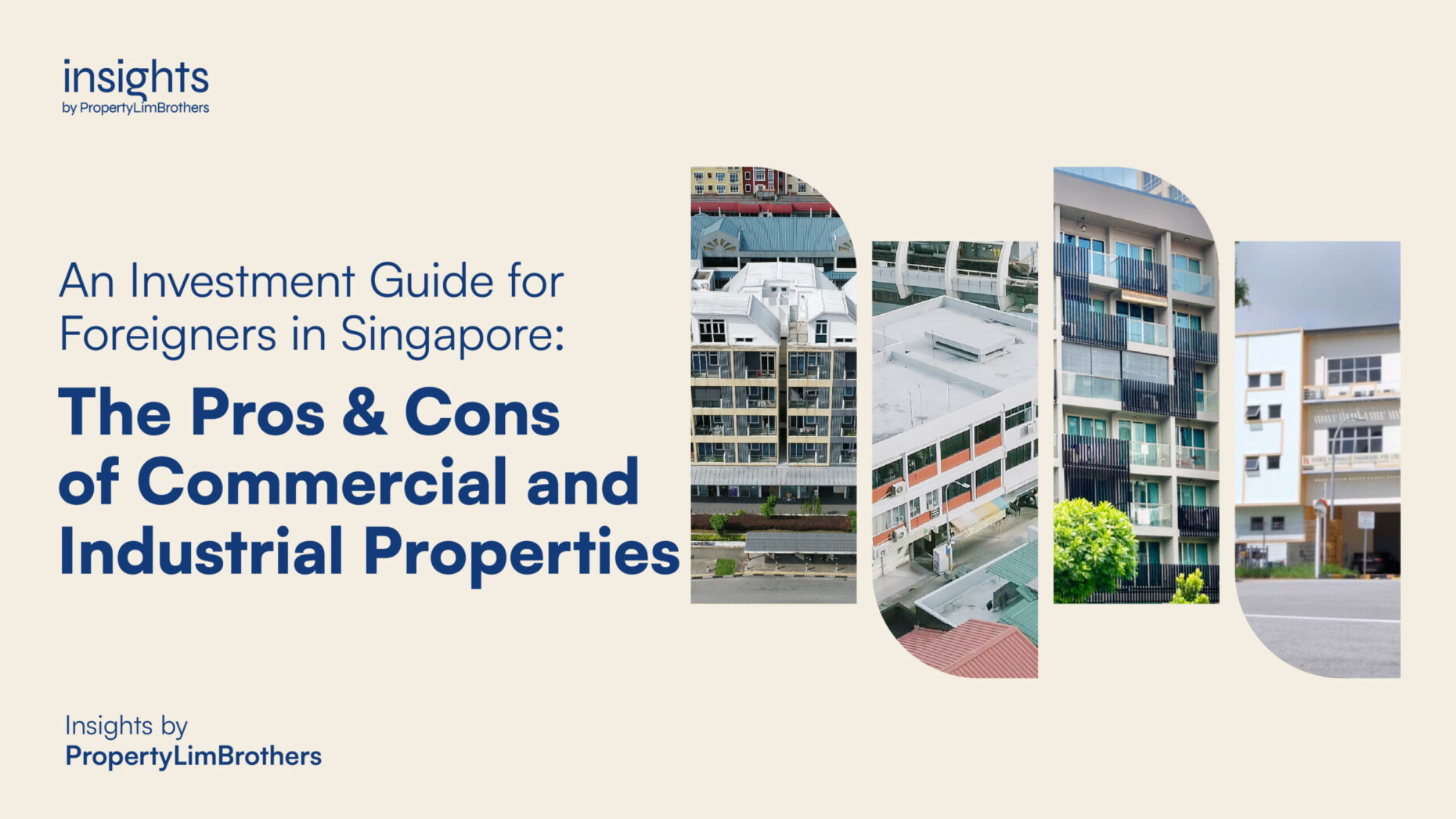
A divorce is a complicated process. There are many ways to go about the divorce through different legal procedures. Every relationship is also different. Whether the divorce is amicable or contested are important considerations for the chosen procedure and likely result. While this might be a tough period for you to go through, we hope that this article will bring some clarity on the issue.
This article will cover these important questions that would help guide you through the process:
-
Is the divorce amicable or contested?
-
Is the property a matrimonial asset?
-
Is it a HDB or private property?
Specifically, we focus on how the divorce will affect local property settlement and only cover aspects of the law that would be more relevant to the settlement outcome. Do note that this article is not a substitute for legal advice, nor does it intend to be. To have greater certainty on the exact process and likely outcome of your personal situation, you should seek the counsel of experienced family lawyers.
Is the Divorce Amicable or Contested?
This first question sets the tone for how many of the matters in property settlement will be done. Whether the divorce is amicable or contested is an important question to gauge how likely the other party is to bring the matter to court. More amicable or agreeable divorces are able to go through a better and more comprehensive mediation process. This matters because it means that both parties are still willing to negotiate and it leaves more room for the decision to be made by the couple themselves rather than by the judge in court.
This has huge implications. Divorce is never a pleasant matter, most think of it as a lose-lose scenario. However, if both parties are still willing to talk, the settlement process may leave both parties more content with the result. This gives them greater control over the decision making process of how the property should be distributed, in a manner that both parties deem fair.

Image courtesy EALC
Do note that property settlement happens after the divorce has been granted by the court. Since issues of matrimonial asset division are only done after the legal separation is granted by court. Building on this assumption that the divorce has already been granted, the Hearing for Ancillary Matters comes next. This hearing has a broad scope in determining the state of finances and custody after the Divorce. We will only focus on the aspects of the division of the matrimonial home and assets.
Simply put, after your divorce is granted by the court, both parties would have a chance to go through a mediation process. If the mediation process succeeds with the approval of the judge, the divorce procedure can be a lot swifter, especially if the agreed-upon result is not contested. Should the mediation process fail, the court will have another hearing to decide the fair and equitable distribution of the matrimonial home and assets. Thus, whether the divorce was amicable or contested will have an important impact on the complexity, length, and cost of the legal process.
Is the Property a Matrimonial Asset?
The most important question in determining the distribution of the home and assets is whether it is first considered a matrimonial asset. Many articles in the press cover this topic, and we will try to value-add as best we can. Matrimonial assets basically set the scope of the assets (and properties) that will be considered distributable after the divorce.
The two main principles in deciding what is a matrimonial asset are:
-
Usage by both parties and their children while residing together.
-
Acquisition or substantial improvement during the course of marriage.
To simplify, if the property in mind touches on either or both of those principles, it would most likely be considered as a matrimonial asset. This would potentially be the case even if the property was a gift, acquired before marriage, an investment property, overseas properties, whether public or private in nature. A caveat here would be that there might be difficulty in enforcing a Singaporean court order on overseas property due to the geographical limitations of jurisdiction.

Image courtesy Forbes
In order to give you a better understanding of this concept, let’s use a table to demonstrate:

The scope of what is considered a matrimonial asset is large. Most properties would be considered matrimonial assets since couples usually get their first homes as BTOs or Resale HDBs after they get married. Even couples that eventually decide to upgrade to private property, or start with private property usually do so while married or residing together. Matrimonial assets will also include any decoupled property (both properties) simply because they were bought during the course of the marriage.
Due to this broad definition, there are very few exceptions in terms of property settlement. The guiding principle that your spouse and children have not used, improved, or contributed to those properties is also a difficult one to abide by. Would it not be strange to have secret properties hidden away from your family?
Note that this is a rough guide on what might be considered as a matrimonial asset. This does not constitute legal advice. It is ultimately decided by the judge whether or not the asset is due to be split.
Is it a HDB or Private Property?
The next important question is whether the property of concern is public (HDB flats) or private (Condo, Landed). ECs kind of land in between since they are under the purview of the Housing Development Board, but are treated as “private condos” when they complete the Minimum Occupancy Period (MOP).
This question matters because it affects whether the property must be liquidated. For public properties, regardless of how long you have held the property, you will be required to liquidate the property when divorced. This is because the Housing Development Board has a family nucleus requirement for properties under its purview (HDB & EC). This is true if you have bought it together with your spouse.

Image courtesy Straits Times
There is no such thing as good timing for a thing such as divorce. But if you’ve bought a BTO, Resale HDB, or an EC, you will likely have to let go of the property even if it is before the completion of MOP or TOP once the divorce is processed. Here are the three main possible outcomes:
Before TOP
-
Surrender the flat to HDB.
Before MOP
-
One of the partners is transferred the ownership of the property as a Single Singaporean Citizen. (HDB, Bank, CPF approval is needed to meet SSC scheme eligibility, loan and CPF requirements)
-
Appeal to HDB and relevant authorities to sell the property on the open market. (No guarantees on this one as it is evaluated on a case-by-case basis)
Note that any gains or losses resulting from any of the three outcomes should be a key discussion point for the mediation or court ancillary proceedings. There is usually an agreed upon distribution of the property in the event of liquidation.
In the event that the property in question is private, the situation is slightly more flexible. As long as both parties are agreeable, they can still hold the property for rental purposes. However, an agreement should be made on the distribution of gains or losses in the event of an exit. Typically in these circumstances, the exit strategy is much clearer, since private property can be sold on the open market. The main consideration is the Seller Stamp Duty (SSD) which could be hefty if the property is sold within three years of purchase.
Closing Thoughts
We hope that this article gives you some idea into the possible outcomes of property settlement should the marriage go south. Nonetheless, it is important to step forward into the future with both eyes open.
Here are some of the pointers that you might want to consider if possible:
-
Alternative Dispute Resolution (if both parties are agreeable to negotiate) — Mediation rather than Court Hearing can be a faster and less costly approach.
-
The principles behind Matrimonial Assets are that it is used for the purposes of the family nucleus. These assets are the ones due for distribution after legal divorce.
-
Public properties are likely to be liquidated unless both parties are eligible and agreeable to transfer the ownership to one party. Private properties offer more flexibility in terms of holding period and rental. Take note that SSD might be a concern.
If you’d like some thoughts from our experts, you can contact us here.






